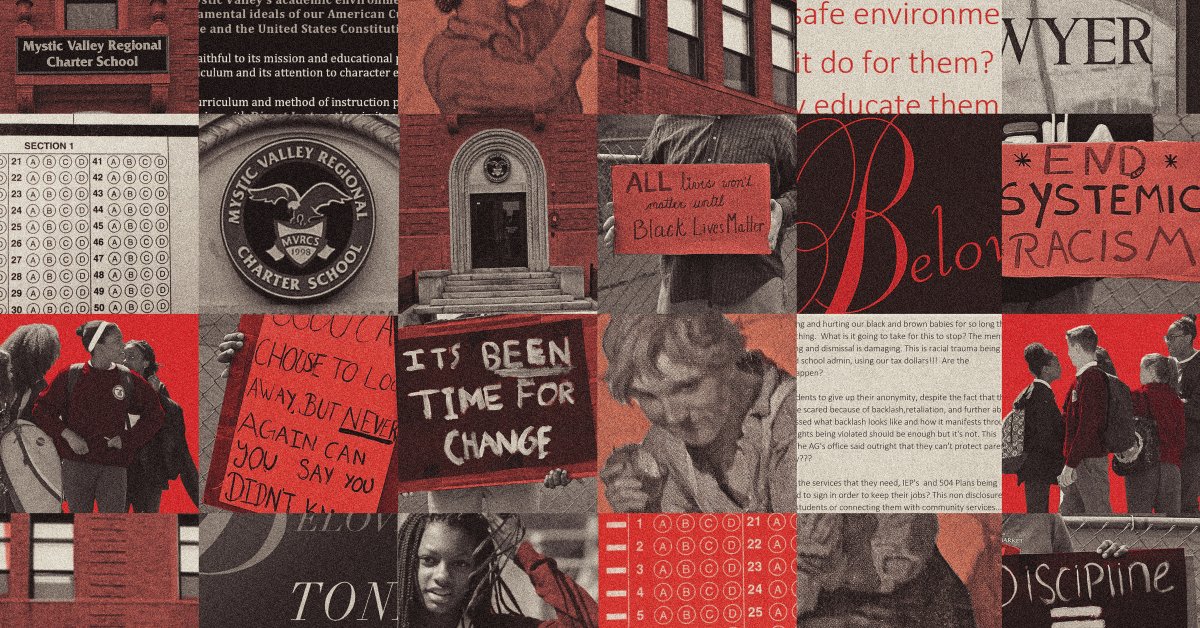
A few years ago, as national debates about racism and history intensified, DESE added a new “cultural responsiveness” standard to its evaluation of charter schools, defined as “an approach to viewing culture and identity as assets” in order to “acknowledge and actively draw upon diverse backgrounds [and] identities.”.
To Mystic Valley, this new criterion seemed like an attempt to impose race consciousness on a proudly egalitarian school.When administrators expressed concerns that its charter was incompatible with the new cultural standards, the state insisted there was no issue.
Mystic Valley has sued the state over the cultural-responsiveness criteria, which it fears could put its charter in jeopardy.
But according to a trove of emails the school obtained through a public-records lawsuit, DESE employees were secretly coordinating with the school’s critics, including the Henrys, the NAACP and local racial-justice activists unconnected to the school.
The critics appeared to strategize with the state officials to go after Mystic Valley.In another email, Stroud praised the activists for their work to “help expose Mystic Valley.” (DESE declined to comment, citing the school’s pending lawsuit. The state attorney general’s office is also reviewing complaints of alleged racial discrimination at Mystic Valley, according to a spokeswoman.).
Other parents at the school, many of them working-class people of color who see it as their child’s best chance at success, are disturbed by the conflict.But parents in the state have also protested the reorienting of the state’s social-studies curriculum to focus on “antiracism”; an attempt to eliminate advanced math classes in the name of equity; new “social emotional learning” standards that ask children to contemplate their racial and gender identity beginning in elementary school; and the elimination of admissions testing at Thomas Jefferson, an Alexandria high school ranked No.
As in Mystic Valley’s case, the push for change has as often come from activists and bureaucrats as from parents or politicians.
“As a middle-aged white guy, despite having done civil-rights work for 30 years, I was ignorant to the importance of hair extensions to women of color,” says Howard Cooper, a liberal Boston lawyer who’s argued civil-rights cases for the ACLU and is now representing Mystic Valley in its lawsuit against the state
